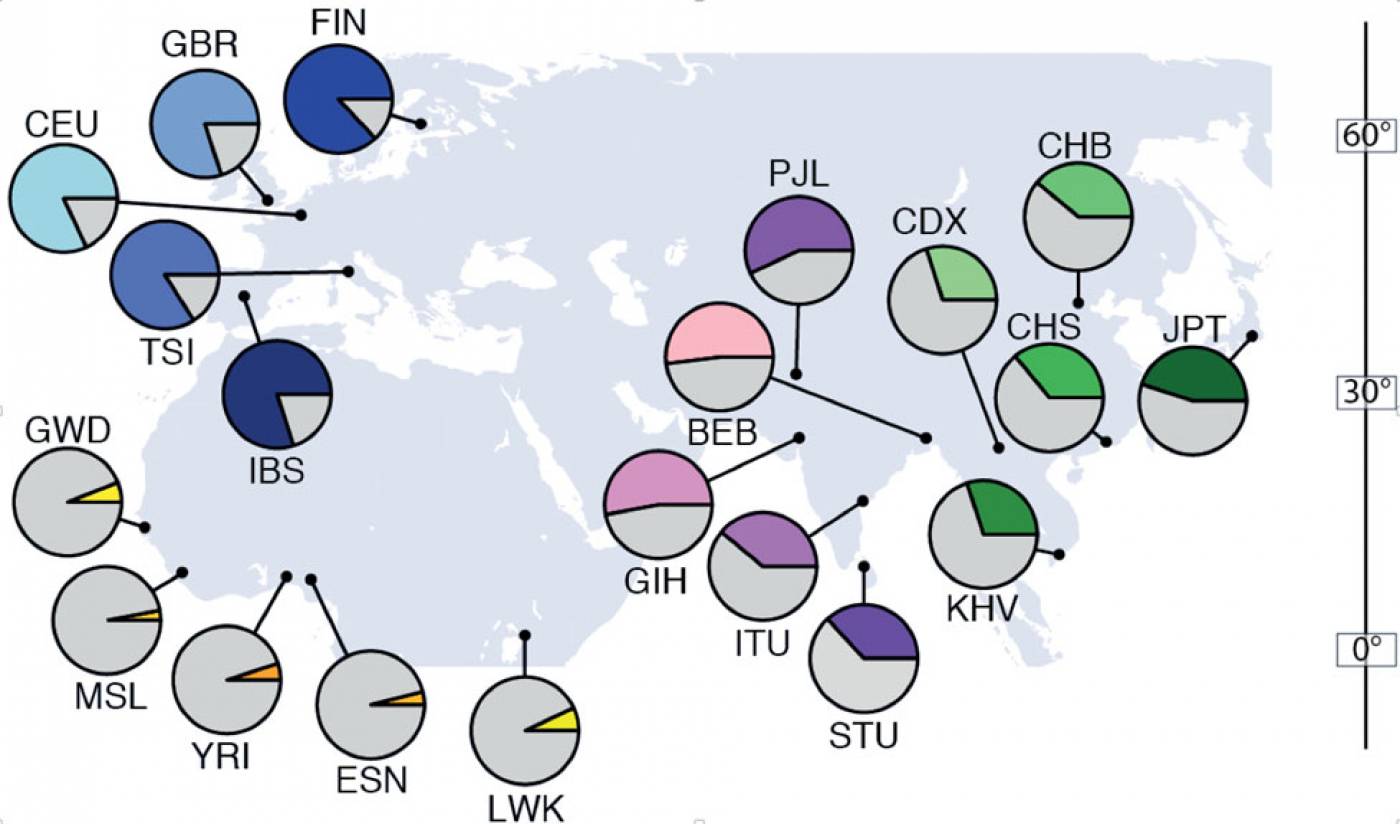Gene may have helped humans adapt to cold climates
10 May 2018
A gene variant common in Europeans may have proliferated because it helped early humans adapt to cold weather, according to UCL research.

For the study, published in PLOS Genetics, a team from UCL and the Max Planck Institute for Evolutionary Anthropology in Leipzig, Germany, investigated the evolution of TRPM8, a gene that codes for the only known receptor that enables a person to detect and respond to cool and cold temperatures. This receptor is also activated by menthol and is responsible for the refreshing feeling of mint-containing products.
A genetic variant in TRPM8 that is upstream from the gene and may regulate its expression, was found to be at highest frequency in individuals of European descent in northern climates, likely because it played a role in early human populations adapting to cold temperatures.
This TRPM8 variant has been previously associated with a slightly higher risk of migraines, and although the percentage of the population that suffer migraines varies, it tends to be higher in the populations with the highest frequency of the cold-adaptive variant of the TRPM8 gene.
The team found that the genetic variant became increasingly common in populations living in cold, northern climates during the last 25,000 years. Only 5% of people with Nigerian ancestry carry the variant, compared to 88% of people with Finnish ancestry.

Within the last 50,000 years, some humans left the warm climate of Africa to colonize colder locales in Asia, Europe, and other parts of the world.
"This colonization could have been accompanied by genetic adaptations that helped early humans respond to cold temperatures, for example by helping people reduce cold sensation or feel pain from the cold," said Dr Aida Andres (UCL Genetics Institute), who supervised the study.
"The direct link between cold sensation and migraine is unknown; however, both are related to pain which provides a possible, but speculative, link," said lead study author Dr Felix Key of the Max Planck Institute for the Science of Human History in Leipzig, Germany.
"Most genetic variants have very similar frequencies across human populations, so it was surprising to see this one with very low frequency in some populations in warm climates and very high frequency in populations in northern Europe," added Dr Andres.
Funding for UCL's contribution to the work was kindly provided by the Max Planck Society.
Links
- Research paper in in PLOS Genetics
- Dr Aida Andres' academic profile
- UCL Genetics Institute
- UCL Biosciences
- Media coverage
Image
- Finland (Pixabay)
- Frequency of the adaptive allele in several human populations (from the 1000 Genomes dataset) (credit: Felix M. Key)
Source
- PLOS Genetics
Media contact
Bex Caygill
Tel: +44 (0)20 3108 3846
Email: r.caygill [at] ucl.ac.uk
 Close
Close

